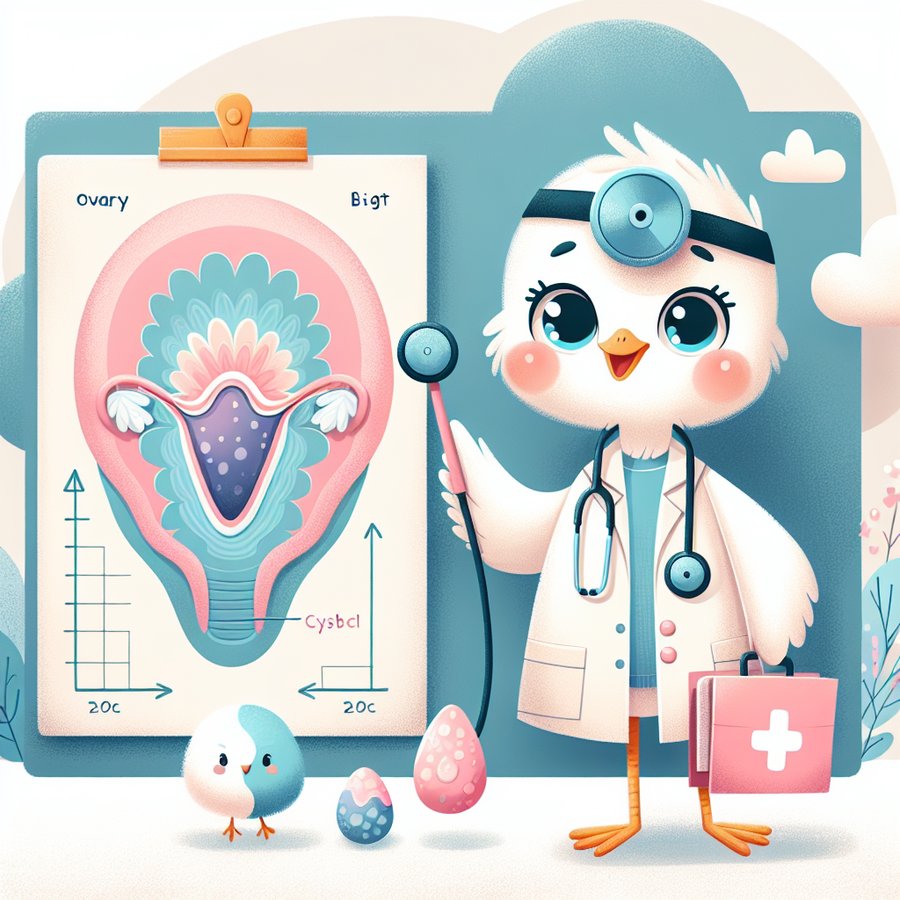Ovarian cysts in neonates, while a relatively rare condition, can be a source of concern for many new parents. These fluid-filled sacs that develop on a baby girl’s ovaries are usually detected during prenatal ultrasounds or after birth. Understanding ovarian cysts in neonates is crucial for early detection and management. This comprehensive article aims to demystify this condition, shedding light on causes, symptoms, diagnosis, treatments, and how to support your child through this health challenge.
What Are Ovarian Cysts in Neonates?
Ovarian cysts in neonates are fluid-filled sacs that form on one or both of a newborn girl’s ovaries. These cysts can vary in size and are generally benign (non-cancerous). While some cysts may resolve on their own, others may require medical intervention. The presence of ovarian cysts in neonates is a condition that can be detected through prenatal ultrasound or physical examination after birth.
The development of ovarian cysts can be attributed to several factors, including maternal hormone stimulation, the newborn’s own hormone production, or developmental abnormalities. Thankfully, with advances in medical science, most ovarian cysts in neonates can be successfully managed, ensuring a healthy outcome for the affected newborn.
How Are Ovarian Cysts in Neonates Diagnosed?
Diagnosis of ovarian cysts in neonates typically involves a combination of prenatal ultrasound screenings and postnatal evaluations. During routine prenatal care, ultrasounds can reveal the presence of cysts in the developing fetus. After birth, if there’s suspicion of an ovarian cyst, healthcare providers may conduct further assessments, including abdominal ultrasounds, to evaluate the size, location, and characteristics of the cysts.
These diagnostic tests are vital for determining the best course of action. Depending on the findings, some cysts may be monitored over time to see if they resolve on their own, while others may necessitate more immediate medical interventions. Early detection and accurate diagnosis are key to managing ovarian cysts in neonates effectively.
Treatment Options for Ovarian Cysts in Neonates
The treatment for ovarian cysts in neonates depends on the size, type, and symptoms associated with the cysts. Many cysts, especially small and simple ones, may resolve spontaneously within the first few months of life. In such cases, close observation and regular ultrasound examinations may be all that’s required to ensure the cysts diminish and disappear over time.
For larger or symptomatic cysts that pose a risk of complications like torsion (twisting of the ovary) or rupture, surgical intervention may be necessary. Minimally invasive techniques, such as laparoscopy, are commonly used to remove the cysts while preserving ovarian function. It’s essential for parents to understand the recommended treatment plan, including potential risks and benefits, to make informed decisions for their child’s health.
Supporting Your Child Through the Management of Ovarian Cysts
Caring for a newborn diagnosed with ovarian cysts can be stressful for parents. It’s important to stay informed and maintain open communication with your child’s healthcare team. Ask questions, seek clarifications, and understand the monitoring or treatment process. Knowledge is empowering and can help alleviate concerns about your baby’s health and prognosis.
Additionally, joining support groups or forums for parents going through similar experiences can be beneficial. Sharing stories and tips can provide comfort and practical advice on navigating the challenges of managing ovarian cysts in neonates. Remember, you’re not alone, and support is available to help you and your child through this journey.
Preventive Measures and Future Implications
While there are no guaranteed ways to prevent ovarian cysts in neonates, regular prenatal care and monitoring can aid in early detection. For parents with a history of ovarian cysts, discussing this with your healthcare provider during pregnancy can ensure that appropriate screenings are conducted.
Fortunately, most neonatal ovarian cysts do not have long-term health implications. However, it’s important to follow up with your child’s healthcare provider as recommended to monitor her health and development. With proper management, most children with this condition lead healthy, normal lives.
For further reading on neonatal conditions and how to care for your newborn, consider visiting resources like Ovarian Cysts in Neonates or other topics such as anemia, acid reflux, and attachment on our website.













